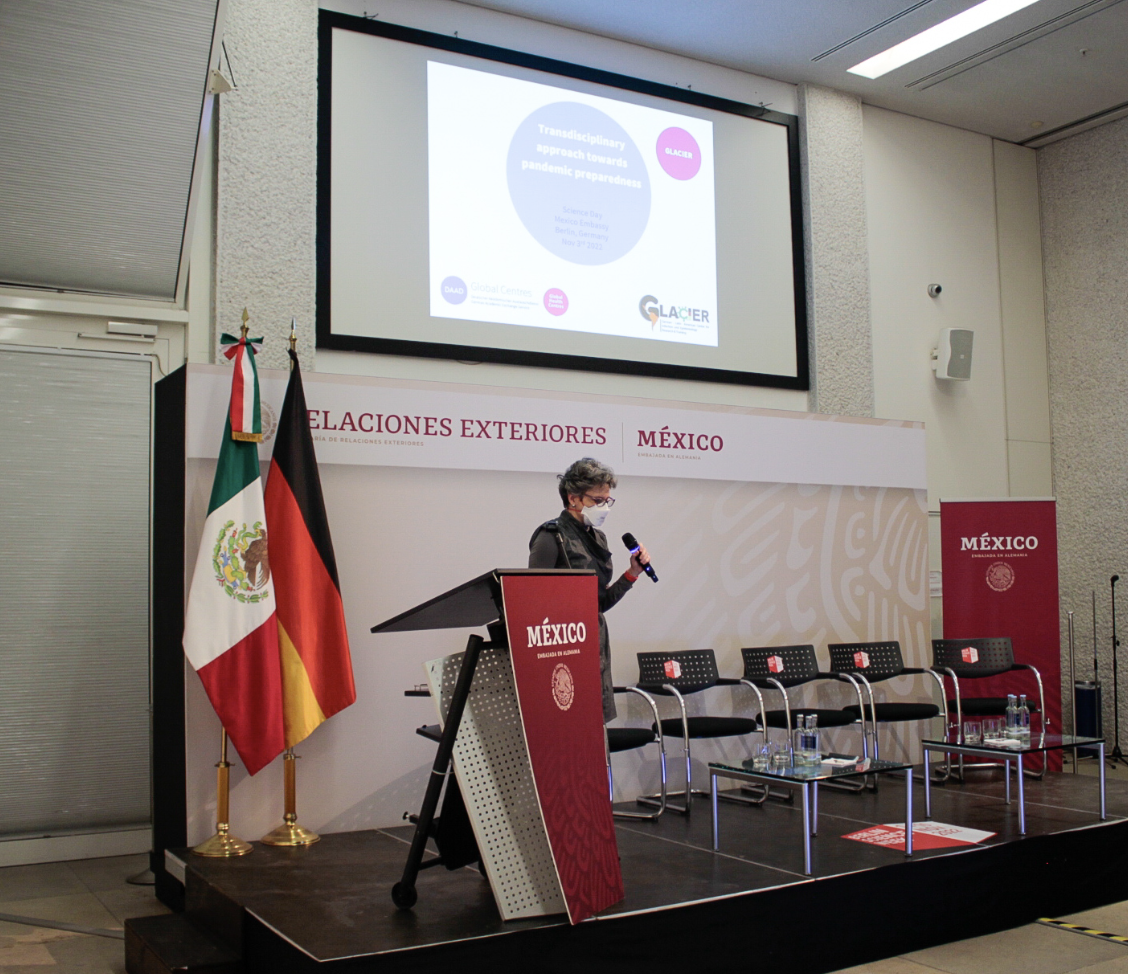
Within the framework of Berlin Science Week, the 5th day of Mexican Science was held at the Embassy of Mexico in Germany on November 3rd.
This year, the hybrid event focused on the progress of existing projects within UNAM’s scientific cooperation with German higher education institutions to stimulate an interdisciplinary dialogue between the communities of the two countries and generate new opportunities for collaboration.
Jan Siemens Head of the Department of Soil Sciences and Soil Conservation at the Justus Liebig University of Giessen and Christina Siebe of the Institute of Geology of the UNAM and representative of the Deutsche Forschungsgemeinschaft (DFG) in Mexico, presented their joint research on the Reuse of Wastewater for Irrigation in Mexico, in which they evaluate the advantages and risks of the practice for soils and its repercussions on health.
Siebe highlighted that the success of this cooperation is reflected in the bilateral exchange of master’s and doctoral students, in workshops, seminars and projects financed by the DAAD, Conacyt and the DFG since 2004.
Ana Escalante, director of the UNAM’s Institute of Ecology, and Jan Drexler, from the Charité University’s Institute of Virology, presented progress on the GLACIER project, which, based on a multidisciplinary approach, aims to strengthen the prevention and treatment of infectious diseases and the development of new vaccines and therapies, as well as improving the preparation, response and post-care to health crises.
Finally, the academics recognized that obtaining funds from public institutions for research represents a great challenge; however, projects like the ones presented accelerate the collaboration process between the universities of both countries. In addition, they pointed out that postgraduate students are the main capital for the enrichment of cooperation and regional and global impact. In this matter, the UNAM headquarters in Germany has the mission of linking UNAM entities and dependencies with relevant partners to facilitate long-term academic cooperation.
